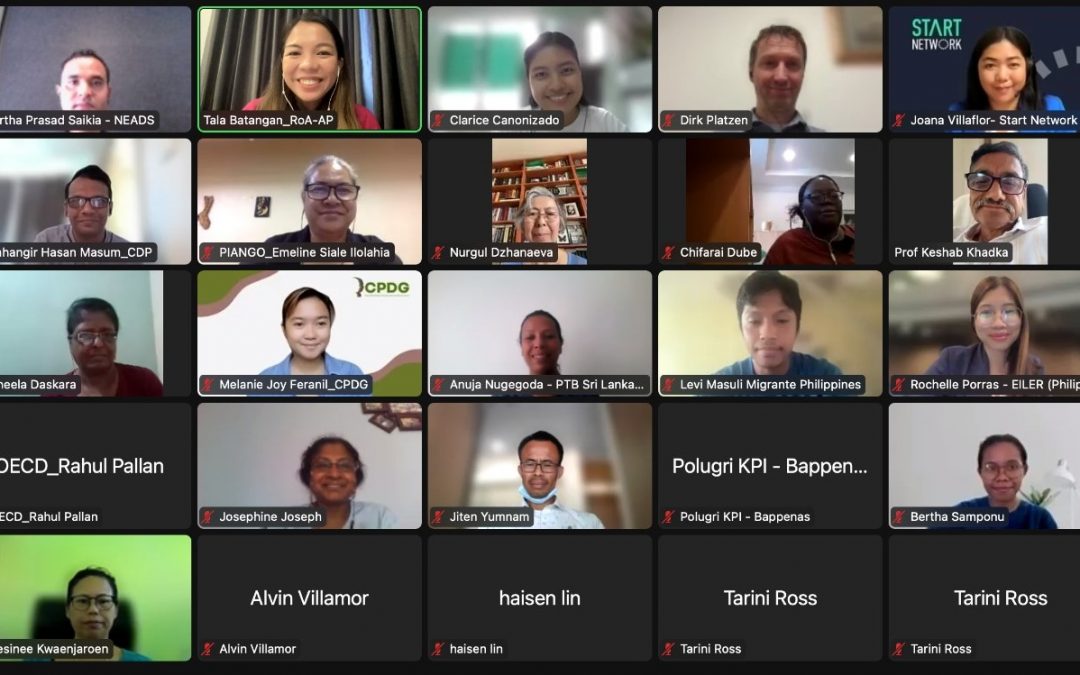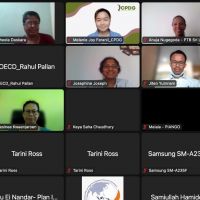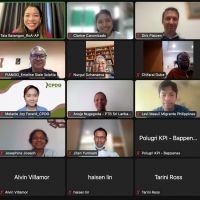PRESS RELEASE
April 3, 2023
Last March 29, “Fit for Purpose?: Forwarding the localization agenda to address the conflict and climate crises in the Asia-Pacific region” was virtually held at the sidelines of the 10th Asia-Pacific Forum on Sustainable Development (APFSD).
The side-event was organized by the Reality of Aid – Asia Pacific (RoA-AP), North-East Affected Area Development Society (NEADS), Pacific Islands Association of Non-governmental Organisations (PIANGO), Coastal Development Partnership (CDP), and the CSO Partnership for Development Effectiveness-Asia (CPDE Asia). The event brought together 44 participants from across the region.
The webinar tackled the role of the localization agenda in the advancement of SDG 17 (Partnership for the Goals) and Agenda 2030 in the region. It also fostered dialogue among development actors from multilateral institutions and civil society on how the agenda can be further strengthened and improved.
Best practices from ongoing localization initiatives
In the Asia-Pacific, the localization agenda is undertaken and promoted by various development actors in different levels and aspects of work. Curt Garrigan from UNESCAP’s Urban Sustainable Development Division spoke on the relevance of integrating Voluntary Local Reviews (VLRs) with the Voluntary National Reviews (VNRs). By doing so, he notes that “actions that are identified and recommended in local areas really are recognized, reported, and can be replicated, and mainstreamed in another location as well”. Garrigan also added that VLRs are helpful in bringing communities together and are instrumental in informing VNRs and national development processes.
Dirk Platzen of the Australian delegation to the Organization for Economic Cooperation and Development (OECD) and Vice-Chair of the OECD-Development Assistance Committee, highlighted that localization is one of Australia’s key humanitarian priorities. Platzen cited the Australia Disaster Ready Program implemented in the Pacific as an example of how they are “aiming to really empower communities, strengthen local organizations, and support the governments that we have been working with to lead disaster preparedness and climate change adaptation.” He mentions Australia’s dedication in building sustainable partnerships with local communities so that benefits can be realized and lessons can be shared among development and local actors.
Joana Villaflor shared about Start Network’s mechanisms in shifting the power, decolonizing systems and building locally-led leadership at the community level through their hubs. She stressed how humanitarian actions, guided by local and indigenous knowledge, provide innovative solutions to the unique problems of communities they work with. Villaflor also articulated that locally-led humanitarian actions are positively driven when “donors, INGOs, other global stakeholders can also learn from the vast experiences of local actors, to enable them to shift their mindset and also appreciate how better collaboration and equitable partnerships would lead to better delivery of service to communities and people affected by crises”.
Start Network also partnered with PIANGO for the Facility Aiding Locally-led Engagement (FALE) initiative, a platform for skills training of local actors and establishment of local funding mechanisms. CSOs also have their own set of best practices to promote the localization agenda. Another example of localization from PIANGO tackles debt servicing and capacitating communities to monitor where and how the national budget is used by governments in the Pacific.
Localization agenda according to local actors
While there have been inroads in localizing and decentralizing development processes, more work needs to be done to ensure that it will truly shift the power to local actors and respond to the needs of communities. CSO panelists during the event expressed strong sentiments on the need for civil society and local organizations to be included in dialogues and meaningful partnerships.
Emeline Siale Ilolohia from PIANGO highlighted how the current aid architecture and development processes perpetuate neocolonialism, as finance and power remains in the hands of donor countries. Ilolahia emphasized that for locally-led development to be actualized, CSOs must claim their space, build on their local knowledge, monitor commitments, and strengthen coordination and solidarity among each other. She also emphasized that the localization agenda must go beyond the humanitarian pillar and has to “be more inclusive in engaging CSOs,” because “with the impact of climate change in the Pacific, it’s going to be everybody’s business”.
Jahangir Hasan Masum of CDP specifically pointed out that “localization must focus on institutionalizing human rights-based approach… and erensure people’s ownership of development actions.” Masum emphasized that the framework of development justice and the principle of “do no harm” must be adequately reflected in the localization agenda.
Meanwhile, Tirtha Prasad Saikia from NEADS highlighted how many development projects lack clear mechanisms for CSOs and affected communities to participate in inclusive and meaningful dialogues. Saikia particularly called on international actors to facilitate the promotion of local leadership and to form strategic partnerships that will amplify the needs and demands of communities in Asia-Pacific.
Commitments to shift the power
To foster the actualization of the localization agenda, Platzen shared Australia’s commitment to consistently monitor progress on the ground with their local partners. He also reiterated the commitment of donor countries in effectively engaging in strong dialogues with national and local stakeholders, including civil society actors. Likewise, Garrigan also shared how UNESCAP provides capacity development initiatives for local actors, such as the Asia Pacific Mayors Academy, which enables peer learning and deeper understanding on the SDGs at the local level. CSOs also commit to participate in dialogues and other initiatives of development actors in order to further enhance the localization agenda.
The side-event became a rich ground for discussions as development actors and civil society both navigate the localization agenda. Moving forward, locally-led development must be able to promote local and indigenous leadership and knowledge, inclusive and meaningful partnerships, democratic ownership over development priorities, and effective accountability mechanisms to make it responsive to the ever-growing challenges in the region. The localization agenda does not only ensure that humanitarian and development actions are fit for purpose, but also serves as a step towards shifting the power to the people, who are the real drivers of development.
You can watch the side-event replay here: https://fb.watch/jCfB965IyX/



